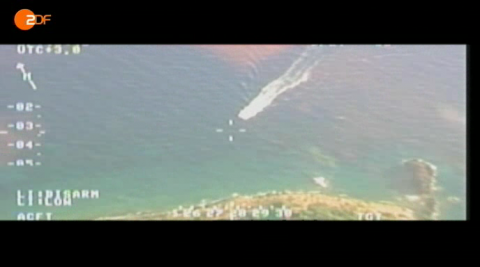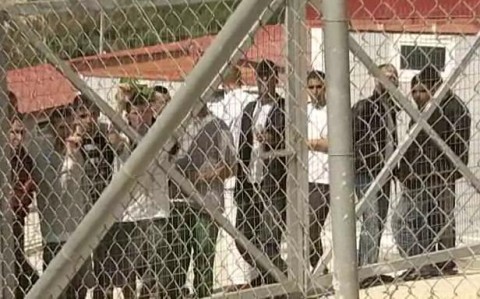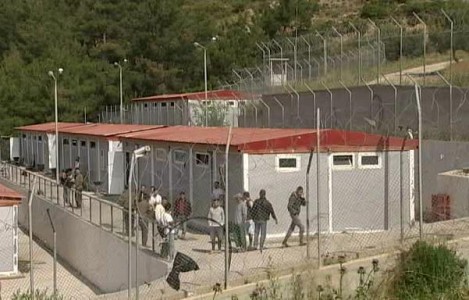As you can see, this our blog is picking up speed again, and we intend to maintain that speed: A lot of things are happening, and of course we will make a lot of things happen this year again, too. But one after the other. We receive a lot of questions concerning various developments, so we try to follow up. We start with these sites.
Pagani, detention centre/prison
Is Pagani closed or not? This is the question most often asked, and subject of heated debate. We have always stated that Pagani is closed (as not-functioning as a detention centre) and open (as in rather open reception centre). This is not entirely true anymore.
To be very clear: The situation in Pagani is far from what it was last year, and this is still a major success. To date, not more than 30 refugees are detained in Pagani, but at most for a couple of days, until they are being transferred to Xios or Athens. We still need to verify what is happening to them there (white paper? detention? deportation?), so bear with us for the time being. The cells however are never closed, a lot of people sleep in the yard, which however is locked and guarded by the local police. The visible difference is that Frontex has become active in the camp, interrogating detainees (like what is happening in Samos).
What to make of this news? The Greek state clearly has not managed to reverse the situation that was created during and after noborder last year. There are no real detention capacities, a new, human-rights-compatible detention centre has not been built (also due to local popular resistance), it is only the european side of things that is moving forward, intervening, forging ahead.
Villa Azadi, open reception centre for under-age refugees
Some of you might be familiar with Villa Azadi, the open reception centre for under-age refugees near the village Agiassos on Lesvos. It was one of the few efforts on behalf of the greek state to house migrants in need of protection in a good and safe environment.
Villa Azadi is not functioning anymore as of this month. There is no more money, hence no paid staff.
Dikili, Turkish port opposite Lesvos, to become deportation port
The newspaper Ethnos reported on the 5th of July that
[d]uring last week’s meeting of Greek and Turkish officials on irregular migration in Athens, the Turkish side agreed to set out the port of Dikili, about 15 miles off Lesvos island, to serve the readmission of irregular migrants in Turkey. Turkish authorities estimate that the port will start operating within the present month of July.
In May, during a joint cabinet session of the Greek and Turkish governments, an agreement was reached to reinforce the Greek-Turkish Readmission Protocol. Apart from agreeing to process 1.000 readmission requests per year, the Turkish side also agreed to open a port for direct deportations. So far, deportations from Greece to Turkey had to pass the land border at the river Evros/Meriç. So in the case of the islands, all intercepted and to-be-deported migrants had to be transferred to Athens, then on to Thrace, and over the land border. This might change now.
Conclusions
The developments in the Agean are severely lopsided. While Greece and Europe are strengthening their deportation capabilities (Frontex patrols, Frontex interrogators, deportations via sea, the continued use of Pagani), the reform (read: creation) of an asylum system vaguely reminiscent of protection is not moving forward at all, and the few gems like Villa Azadi are being shut down.






